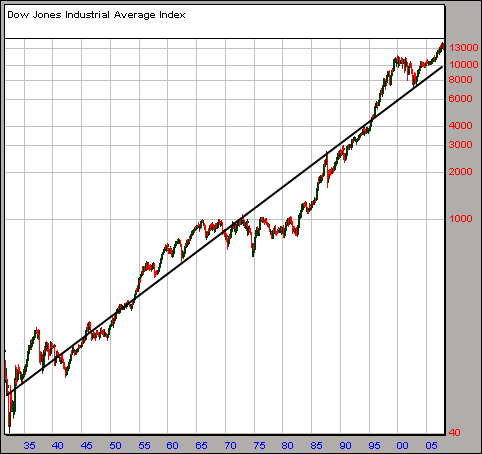 Group Intelligence is a type of synergistic IQ where the collective IQ of the group (assuming that the participants have little emotional connection) becomes greater that any of the individuals on their own.
Group Intelligence is a type of synergistic IQ where the collective IQ of the group (assuming that the participants have little emotional connection) becomes greater that any of the individuals on their own.
Group Intelligence as a part of trading psychology is the basis of the ‘Efficient Market Hypothesis’. It assumes that at any given time, security prices fully reflect all available information making it impossible to beat the market except through luck.[1] Many studies have been conducted that clearly demonstrate the power of Group Intelligence.
Do you remember the TV show ‘Who Wants to Be a Millionaire?’ By answering correctly 15 multi-choice questions that got successively harder, contestants had the opportunity to go home with up to 1 Million dollars.
Unintentionally every week ‘Who Wants to Be a Millionaire?’ pitted group intelligence against individual intelligence and nearly every week, group intelligence won. When people got stuck they could call a pre-selected person to help answer the question, another option was to poll the studio audience who would cast their votes by computer instantly.
Logic would suggest that the pre-selected ‘smart’ friend who no doubt had access to the internet would be most likely to have the correct answer. As it turned out the ‘smart’ friend was right 65% of the time which is not bad. However the collective answer of the random people in the studio audience who had nothing better to do with their time, was right 91% of the time.[2]
One of the first recorded examples of this phenomenon is from 1906 when Sir Francis Galton analyzed the entries of an ox-weighing contest at a county fair. In the hope of winning a prize nearly 800 participants paid a six penny fee to enter. Galton discovered the average guess to be 1,197 pounds which was almost identical to the ox’s actual weight of 1,198 pounds.[3]
The price of the stock market is determined in the same way just on a larger scale: people place their guess on what they think stocks are worth and the average of those guesses determines the clearing price, the point where a willing buyer meets a willing seller.
While the process of a group pricing a stock or identifying the weight of an ox is the same, the influnces on the individuals of the group are very different and so are the results. Guessing the weight of an ox is not an emotionally demanding decision and there is no influence on the decision by the other participants. Guessing the price of a stock however can be a very emotional decision and one that is easily influenced by other members of the group. This is why the ‘Efficient Market Hypothesis’ fails; it does not allow for the distortion caused by emotion. Returning to our definition of the stock market:
.
The stock market represents the collective human emotional interpretation of all that is known and its subsequent effect on the supply and demand of shares in publicly traded companies.
.
Collective human emotion causes Herd Mentality which leads to irrational behavior and subsequent inefficient pricing. Yet the collective knowledge, ‘all that is known’ in the absence of emotions (Fear, Greed etc) causes Group Intelligence; synergistic IQ where the pricing of an asset will be extremely close to its true value.
.

.
Above you can see a chart of the Dow Jones Industrial Average going back to the 1930s on a log scale. This example is purely for illustrative purposes but assuming the black line represented the markets true value, the gyrations either side show where fear and greed have caused irrational pricing. By averaging out the performance of the market over time, the extremes of emotion become more obvious.
.
Most of the time stocks are subject to irrational and excessive price fluctuations in both directions as the consequence of the ingrained tendency of most people to speculate or gamble … to give way to hope, fear and greed. – Benjamin Graham
.
These deviations from fair value are what professional investors and traders are able to exploit because of their ability to remain emotionally neutral in their reasoning. Unfortunately their profits come at the expense of the majority of market participants who follow the crowd and are driven by emotion.
Eventually the market will always correct back to the true value of its underlying companies as a whole. The true returns from a mature market over the long term will never be more than a few percent a year and this is the return that can be expected by the buy and hold investor.
Where have you seen Group Intelligence in action? Do you think that the markets are efficient? Leave your thoughts in the comments section below.
.
Part 1 – Trading Psychology
Part 2 – Herd Mentality
.
- ^ Efficient Capital Markets: A Review of Theory and Empirical Work by Eugene F. Fama, The Journal of Finance, Vol. 25, No. 2, May, 1970, Pages 383-417.
- ^ Group Intelligence – The Wisdom of Crowds, 2004 by James Surowiecki.
- ^ Vox Populi by Sir Francis Galton, Scientific Journal – Nature, March 7, 1907 Pages 450-451.